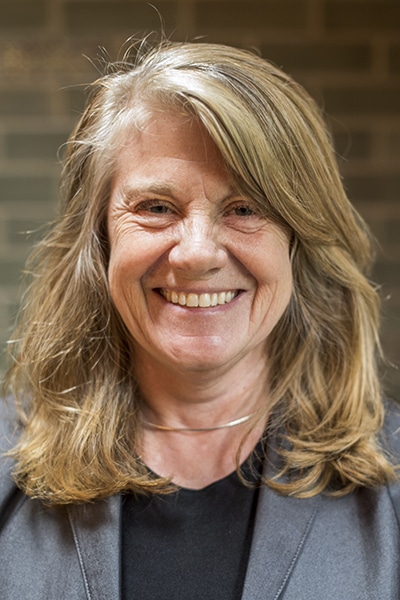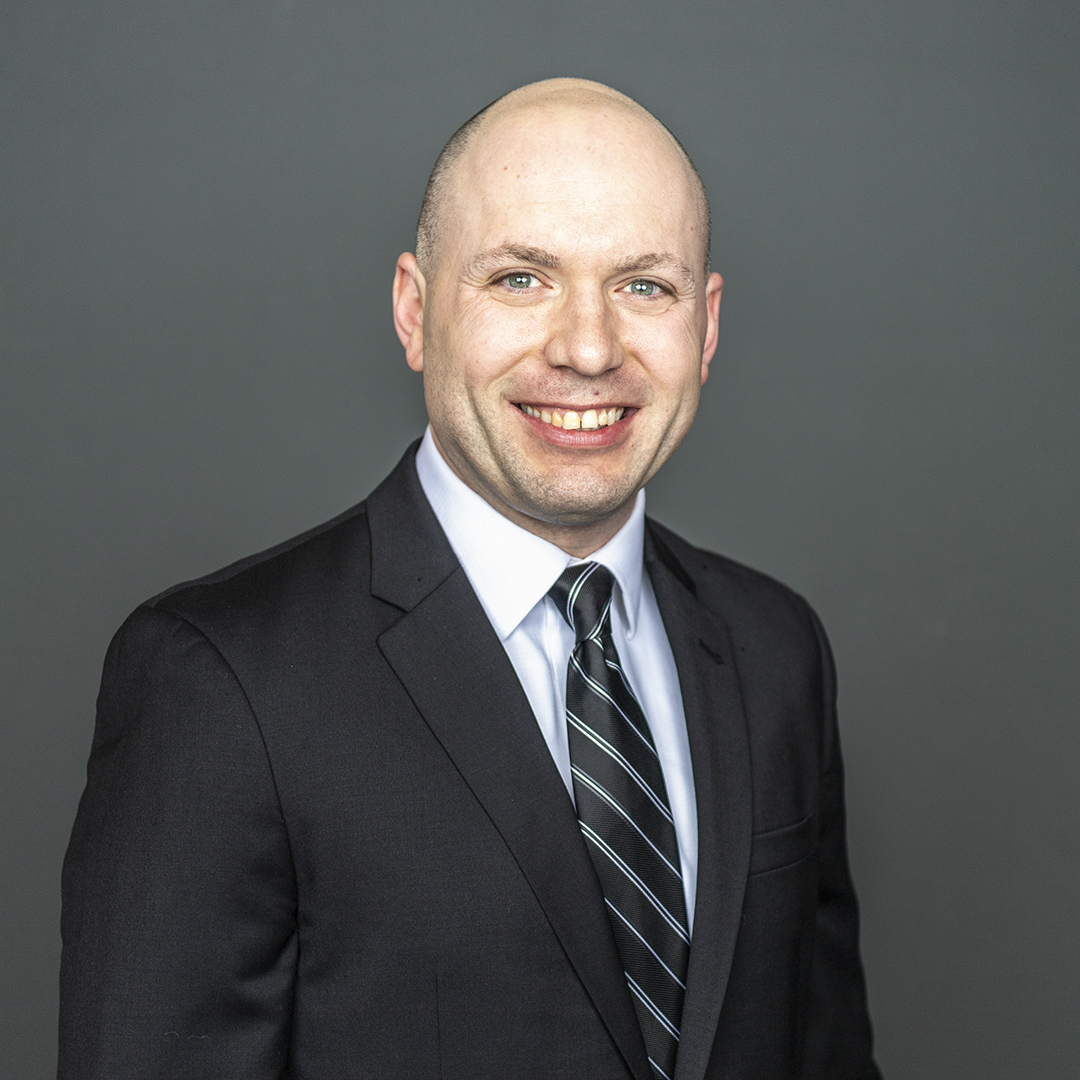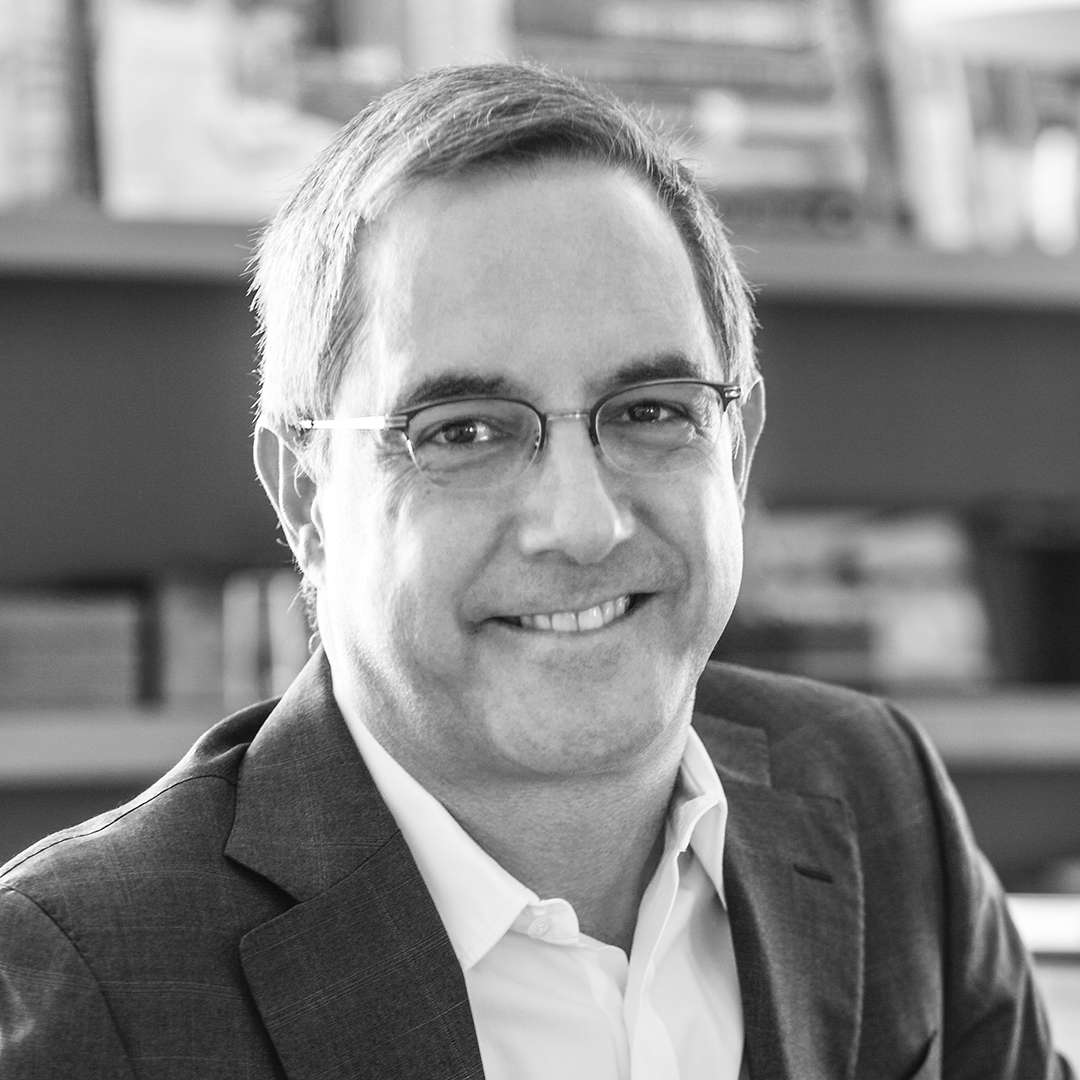“I can’t remember, because of the malarial fever, how I figured out they were diamond smugglers.” Barbara McClung’s decision to go to Penn Law School had more than a few moving parts, but she can trace it back to her days as a doctoral student conducting fieldwork in Sierra Leone.
The current chief legal officer for Caribou Biosciences, Inc., a leading CRISPR genome-editing company, has leveraged her wide array of IP experience to cultivate and maintain Caribou’s growing patent portfolio. But before she came to lead Caribou’s legal team, McClung imagined a different career for herself.

As a PhD student, she found herself in Sierra Leone studying black-and-white colobus monkeys when she became seriously ill. Only aware at the time that she was very sick, McClung had to cut her research short and return home. On the way back, she found herself on a long layover in Monrovia, Liberia, drinking water to try to offset her spiking fever and barely able to remain upright. That’s when two sociable but unassuming men began chatting with her. “I told them that I was so sick I wasn’t sure I was going to be able to get back on the plane,” McClung says. The two men readily offered to help her onto the plane but wouldn’t answer any questions about what they had been doing in Sierra Leone.
Upon arrival in New York, the two men emerged from the plane restrooms decked out in expensive-looking suits. “It wasn’t until later that I realized Sierra Leone had a lot of diamonds and these guys were essentially diamond smugglers,” McClung says. After making it back to the States and a handful of hospital visits later, McClung knew two things: she had contracted malaria on her trip, and it was time to adjust her career path.
McClung says patent law provided her an alternative that offered the best of both worlds in terms of combining her love of science and her passion for learning. “You are always doing something new with cutting-edge science, but you don’t have to do all the hard field work and spend years doing research,” McClung says. The chief legal officer thinks the time she spent traveling and learning prior to law school has provided her a broader perspective than had she gone straight to law school, thus providing benefit at Caribou, where gene editing ethical questions range from editing human embryos to editing tobacco plants.
McClung says initially, the opportunity to join Caribou in 2015 didn’t appear legally complex enough to catch her interest. “Caribou hadn’t done a big round of financing yet, and I told the CEO, Rachel Haurwitz, that they didn’t need someone with twenty-eight years of legal experience.” Haurwitz understood but suggested that McClung sign a nondisclosure agreement before the conversation continued. That’s when McClung started paying attention.

It was then that McClung learned of the extensive patent battle between the University of California, Berkeley—Caribou’s founders are scientists from this university—and the Harvard/MIT-backed Broad Institute over who first invented the transformative CRISPR-Cas9 technology, which could enable easier and more versatile gene editing. McClung’s response to Haurwitz then: “Oh, you need me.”
McClung was Caribou’s first hire on its general and administrative side; the fifteen or so other employees at Caribou were scientists. “I was the first person to ask for a file cabinet and a printer and a telephone on my desk,” McClung says. “Everyone else had a laptop in the lab and was self-sufficient.”
From zero file cabinets and patents in 2015, Caribou now boasts twenty-eight patents and a wide array of patent licensees, and McClung’s legal team includes a transaction attorney, a paralegal, a contracts manager, and a director of intellectual property. She expects that the legal team will continue to grow.
Caribou’s success has transitioned the company from a general research platform further into a company focused on human therapeutics. And that shift has meant moving from developing platform-based IP to looking at more specific applications.
Caribou plans to double its office and lab footprint in Berkeley, California, this summer, up from sixty employees now. “For me, one of the challenges is going to be helping to maintain the Caribou culture, because it is very, very strong,” McClung says.
McClung says that a strong code of ethics, from the CEO on down, has made Caribou an easy place to work. “The patents and licenses are great, but sometimes it’s the things I don’t have to worry about that are successes to me,” she says. McClung says she isn’t tasked with many of the PR nightmares that befall other start-ups whose culture may not have ethics as strongly ingrained.
McClung’s job is also made easier, she says, by developing relationships with the scientists conducting research at Caribou. It creates an easy platform to get important information right away and is one of the best parts of working in-house for her. “When you’re a partner at a firm and everything is going fine, no one talks to you anymore,” she jokes. “In-house, I get to learn something new every day.”
Fish & Richardson salutes Barbara McClung for her inspiring leadership, creative legal mind, and continued success. We have seen the importance of her contributions to Caribou Biosciences during the multiple matters we’ve had the privilege of working with them on and are proud to partner with Barbara and her team.


